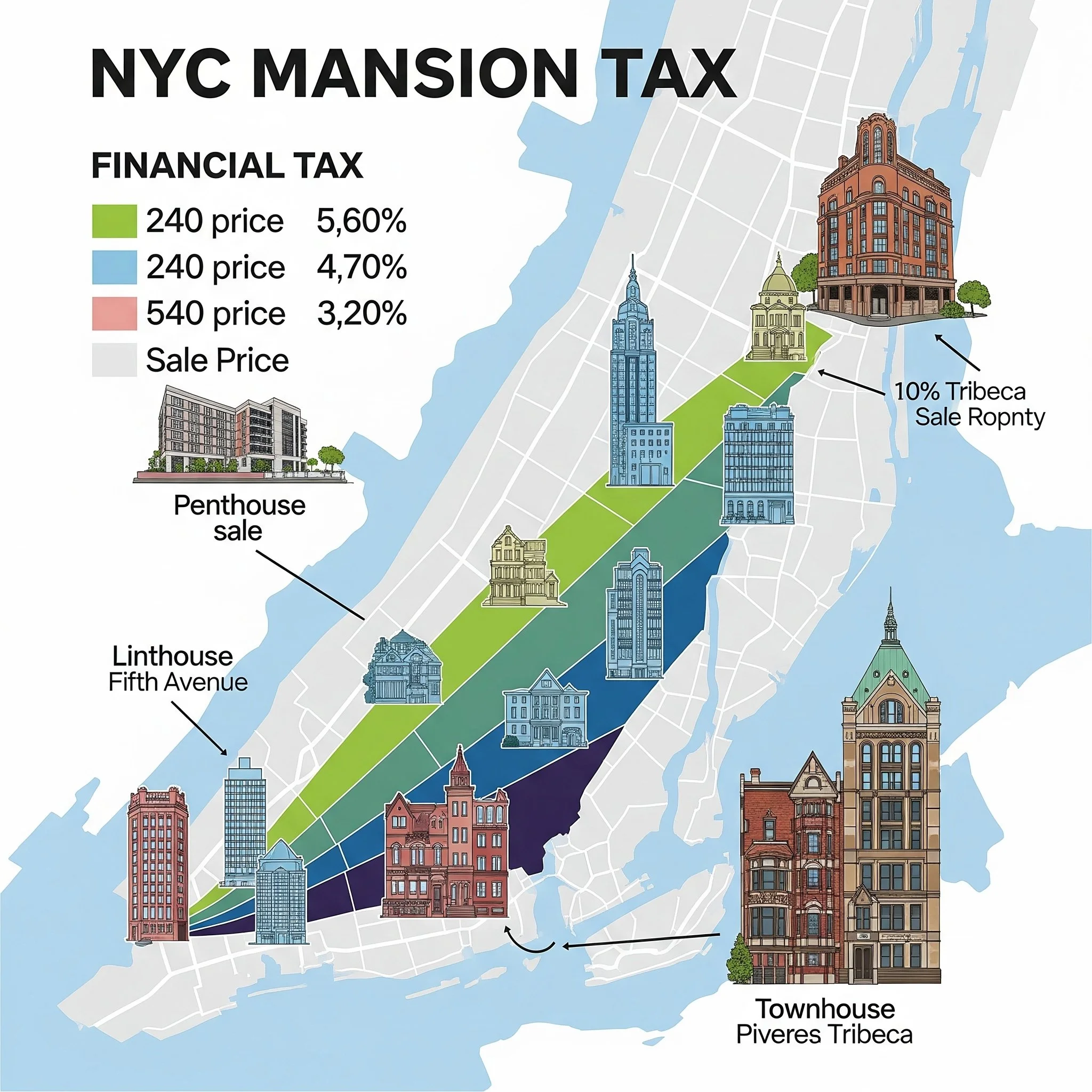What Is The NYC Mansion Tax
The NYC Mansion Tax is a real estate transfer tax levied on the purchase of residential properties within New York City that sell for $1 million or more. This one-time fee is paid by the buyer at closing and is calculated as a percentage of the total purchase price. While often referred to as a "mansion tax," the $1 million threshold means it applies to a wide range of properties, from luxury homes to many co-ops and condos, given New York City's high property values. It's a significant closing cost that buyers must factor into their budget.
The Mansion Tax was first introduced in 1989 by Governor Mario Cuomo's administration as a flat 1% tax on residential properties exceeding $1 million. Its primary purpose was to bolster New York State's budget during a challenging economic period by generating revenue from high-value real estate transactions. In 2019, recognizing the substantial increase in property values since its inception, New York lawmakers revised the tax structure, implementing a progressive tiered system to apply higher rates to more expensive properties and further increase state revenue.
The current tiered system for the NYC Mansion Tax, applicable to residential purchases of $1 million or more, is as follows:
1.00% for purchases from $1,000,000 to $1,999,999
1.25% for purchases from $2,000,000 to $2,999,999
1.50% for purchases from $3,000,000 to $4,999,999
2.25% for purchases from $5,000,000 to $9,999,999
3.25% for purchases from $10,000,000 to $14,999,999
3.50% for purchases from $15,000,000 to $19,999,999
3.75% for purchases from $20,000,000 to $24,999,999
3.90% for purchases of $25,000,000 or greater


